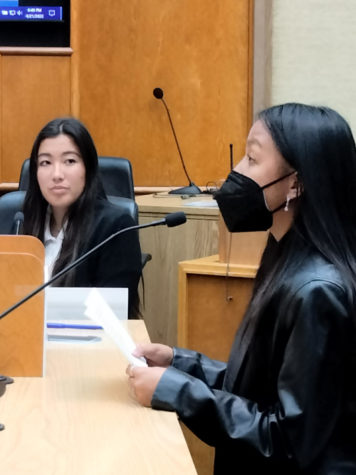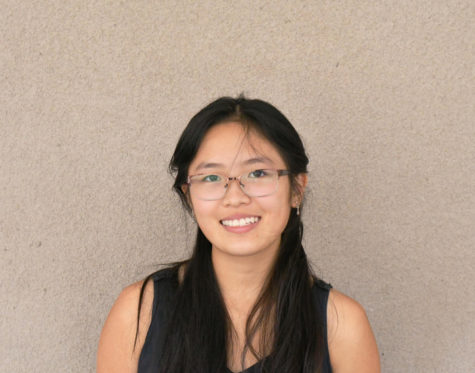Santos urges action against climate change
May 6, 2022

Hours before Earth Day, student-led activism group Youth v. Oil succeeded in passing their anti-fracking resolution at the San Diego Environment Committee. As a part of the ceremony, Bella Santos (11) stepped up to the podium to present a comment.
“We’re calling on Governor Newsom to phase out fracking in a just manner, which includes having setbacks between fracking sites and communities, and having job opportunities for people who used to work on these sites when we transition to clean energy,” Santos said.
After organizing park cleanups, climate strikes downtown and at local schools, festivals to encourage youth participation, and social media campaigns to bolster support for their petition, the Youth v. Oil team had dedicated hours in the last year or so, building momentum for their campaign, the primary goal of which was to demand action from Governor Newsom on the issue of phasing out fossil fuels in California.
While the moment was certainly a victory, to Santos, this is only the first step in what she hopes will be a fruitful push for meaningful change.
“I’ve been on the general campaign team since nearly the beginning,” Santos said. “I was involved in putting the actual resolution in the first place, so it’s really gratifying to be able to see it come this far.”
Santos’ own experience with climate activism started at the beginning of the pandemic, when she found herself at home, kept away from the outdoor activities that she so cherished.
“I’ve been a Girl Scout since I was really young, so I’ve always been really in touch with the natural environment, whether that has been through camping, hiking or playing soccer,” Santos said. “Especially living in San Diego, where we have great weather and beaches, I think I’ve always been connected with nature.”
Santos channeled this love of the natural world into something she could tangibly work on—activism for reversing climate change.
“I’ve always been interested in civic engagement,” Santos said. “But when COVID-19 started, I tried to look for opportunities to do something other than sit at home, and I found a Youth4Climate camp.”
That year, in July and August, she participated in a virtual summer program hosted by the San Diego 350 Youth4Climate (SD350 Y4C), where she learned more about climate change, skill building, leadership and activism. There, she made connections with other young activists and was motivated to join other groups that were built to help students speak out against the threat of global warming.
The intersectional facets of climate change—particularly how the issue of global warming impacts minority communities—are what drew her in, Santos says. Seeing how climate change disproportionately hurt those who had already been marginalized by systemic oppression struck a chord in her. Bolstered by this new motivation, in the fall, the scope of her work took on a new shape. Santos began to collaborate with other student activists on the SD350 Y4C Youth v. Oil Campaign.
“We’ve passed our resolution at various school boards,” Santos said. “But the resolution is ultimately for Governor Newsom, so all the other places that we’re trying to get this resolution passed are basically to generate support.”
At the same time, she’s been involved in a number of opportunities for young climate activists. As a part of her work, Santos has participated in the SD350 Y4C Media Fellowship, during which she engaged volunteers and community members in outreach organizing; a process that involved extensive graphic design, web development, and the training of other students.
Santos has also presented at a virtual summit as a part of UCSD Climate Champion program after helping to develop climate-change-centered resources.
“Another thing that I’ve been working on is climate education,” Santos said. “I was working on this project with a youth team, in order to formulate a database with resources for teachers to use as supplements to their existing courses, which were related to climate. We also found resources that we were interested in or had used before, in order to allow other students easy access.”
Despite her lengthy experience with activism, however, Santos finds herself focusing more on what is to come, she said. Youth v. Oil’s next steps will be to get their resolution sent to the state legislature, senators, and the governor himself.
“At a systemic level, policy moves really slowly,” Santos said. “Especially since climate change is seen as such a politicized issue. It’s hard to gain that support from higher-up people, because they don’t want to seem too controversial, but we’ve gotten a lot of community support, and we hope to keep pushing.”


